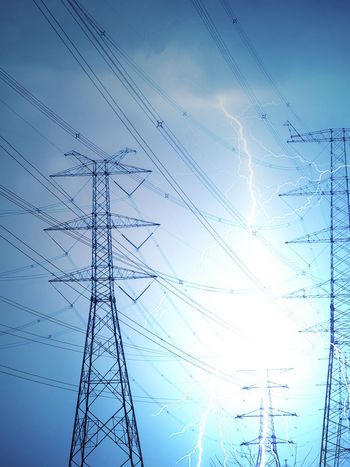DC Systems and Power Electronics
by Dr. Mohamed Rashwan, Chairman & Ms. Joanne Hu, Secretary
At the time of writing this report, the World we live in, is facing the challenge of the COVID-19 pandemic. Basically, the world has come to a standstill. But in reality, the pandemic has showed and taught us many lessons. The important one in my opinion, is cooperation and caring. Even with social distancing and the inability to physically meet, we still cooperated and helped each other and acted responsibly to reduce the impact on the most vulnerable. CIGRE is a perfect example for such experiences.
Study Committee B4 is organized very much the same as all Study Committees. It has 24 regular Members, 3 additional Members to cover distribution issues related to the Study Committee, and 12 observers. The Study Committee has 413 experts from 34 countries actively involved in 20 Working Groups including 30 women.
Scope of work
The scope of SC B4 covers DC systems and power electronic (PE) equipment for AC systems which includes DC equipment for UHVDC, HVDC, MVDC and LVDC. The Study Committee also addresses DC systems and equipment as well as Power Electronics for other applications such as distribution, and Power Quality improvement. DC converters for energy storage are part of the activities of SC B4. The Members of SC B4 come from transmission system operators (TSOs), manufacturers, utilities, distribution system operators (DSOs), consultants, universities and research institutes. SC B4 is active in recruiting young engineers to participate in its activities.
The Study Committee activities span the areas of specifying, design, implementation, operation, maintenance, refurbishment of DC, FACTS and power electronic devices in the transmission and distribution systems. It cooperates with other Study Committees in the equipment and systems areas. For example, currently SC B4 has joint Working Groups with SC A3, SC B1, SC C2, SC C4, and SC C6. In past years SC B4 had jointly worked with SC A2, SC B2, and SC B5. Study Committee B4 has currently a joint Working Group with IEEE.
Working Group activities
Because of the increased renewable energy sources in the power system, there are growing concerns in the market with respect to the operation and fault response of the AC grid with a reduction in the amount of synchronous generation and a corresponding increase in Power Electronic (PE) generation. The discussion was leading towards the VSC HVDC converter performance in the same context as PE connected generation, neglecting that VSC HVDC is a transmission system as opposed to PE connected generation. Of course, VSC HVDC converters are inherently flexible in their operating characteristics and can be made to respond to AC events in different ways dependent on the system needs. However, some responses may impact on the plant rating and hence the cost of the converter. This could lead to the economic cases for HVDC transmission connections being negatively impacted by an imposed transient response intended to make this transmission infrastructure component respond in a similar way to a synchronous generator. Study Committee B4 established in 2017 a task force to investigate and tackle these issues. The task force completed its work and published its paper in CSE in 2019. The task force recommended:
- The development of a concise set of requirements appropriate to HVDC converters
- The finalisation of a test bench simulation circuit to permit the comparison of synchronous generation dominated AC grids to PE dominated AC grids
- Based on the test bench identify, through simulation, the inherent capability of HVDC converters considering different control modes.
Consequently, SC B4 launched a new WG B4.87 “Voltage Source Converter (VSC) HVDC responses to disturbances and faults in AC systems which have low synchronous generation” to discuss this topic in more details.
SC B4 is actively responding to the changes that are happening in the industry. The Study Committee has formed a number of Working Groups to address such changes:
WG B4.81 - Interaction between nearby VSC-HVDC converters, FACTs devices, HV power electronic devices and conventional AC equipment
This WG focuses on the interaction between VSC-HVDC converters and the other power electronics or passive HV (High Voltage) devices or components.
WG B4.83 - Flexible AC Transmission Systems (FACTS) controllers’ commissioning, compliance testing and model validation tests
This Working Group will discuss the entire suite of commissioning tests conducted as part of commissioning a new or upgraded FACTS controller. The Working Group will present best practices for commissioning and compliance testing of different types of FACTS controllers. A four-stage process comprising equipment, sub-system, system commissioning and grid compliance tests will be discussed as applied to all FACTS controllers. These tests will include some tests conducted by the FACTS controller manufacturer at the factory, and all those required by the Owners or system operator before the FACTS controller is permitted to operate unrestricted. Therefore, the factory acceptance tests (FAT) should be used to validate EMT models for the FACTS controller to be integrated into the grid.
WG B4.84 - Feasibility study and application of electric energy storage systems embedded in HVDC systems
The number of Battery Energy Storage Systems (BESS) connected to power systems is increasing at a rapid pace throughout the world due to their ability to provide the flexibility needed to integrate intermittent RES and deliver superior energy efficiency. In addition to Li-ion, new technologies such as Supercapacitors and Super-conducting Magnetic Energy Storage Systems seem to present a promising solution to provide fast frequency response to the network. Since HVDC and MVDC industrial solutions currently propose more efficient and modern converter topologies, their application and potential benefits needs to be considered, all the more with the increase in storage system ratings and their connection at higher AC voltage levels. The WG is addressing many of these options. In addition, preliminary economic aspects will be considered to complement this comparison and assess the overall techno-economic benefits of all solutions.
WG B4.85 - Interoperability in HVDC systems based on partially open-source software
Currently, the vast majority of HVDC connections are of the point-to-point. Typically, both converter stations in such a link are supplied by the same manufacturer, which simplifies the coordination of the control and protection systems. A way of reducing the number of converter stations and increasing reliability is to connect HVDC links together on the DC side into multiterminal DC (MTDC) systems. Eventually, these could be expanded into an HVDC grid which can offer, cost savings and reliability improvements. The behaviour of converter controls and protection is to a large extent defined by software. The existing control and protection software are all proprietary to the respective OEM (Original Equipment Manufacturer). Standardisation of performance requirements as well as standardisation of certain interfaces and parameters governing the behaviour of the converter when interacting with other converters are important measures to enable interoperability. The WG will define the necessary performance requirements depending on the relevant application pre-conditions such as multiterminal/DC grid applications or multi-infeed applications. It is clear that standardizing control and protection signal exchange/communication needed for interoperability is important. Therefore, it is important to investigate this issue. It is also important to identify a suitable open source software licenses for use in HVDC control and protection
JWG B4/A3 86 - Fault current limiting technologies for DC grids
SC B4 established several WGs to investigate the feasibility and specific issues of DC Grids. As raised and expounded in CIGRE Technical Brochure 533 by Working Group B4.52 (HVDC Grid Feasibility Study) and further researched in CIGRE JWG B4/B5.59 “Protection and local control of HVDC-grids”, Technical Brochure 739. DC faults in a DC grid will lead to high DC fault currents, which imposes not only high stresses on the converter components, but also on the requirements for the fault detection, control and protection, communication, and DC breaker capability. The fast-developing fault currents can be effectively interrupted by applying DC circuit breakers. The fault current can be suppressed by fault current limiting (FCL) devices, this is important for the rating of dc breakers. Therefore, it is important to investigate the fault current limiting technology in dc grids.
Working Groups completed work
A number of Working Groups completed their work:
- WG B4.72 - DC grid benchmark models for system studies (available soon on e-cigre)
- WG B4.68 - Revision of Technical Brochure 92 - DC harmonics and filtering
Available on e-cigre:
Active Working Groups
- WG B4.64 – Impact of AC System Characteristics on the Performance of HVDC schemes
- WG B4.69 – Minimizing loss of transmitted power by VSC during Overhead line fault
- WG B4.70 – Guide for Electromagnetic Transient Studies involving VSC converters
- WG B4.71 – Application guide for insulation coordination of VSC converter stations
- JWG B4/B1/C4.73 – Surge and extended overvoltage testing of HVDC Cable Systems
- WG B4.74 – Guide to Develop Real-Time Simulation Models (RTSM) for HVDC Operational Studies
- WG B4.75 – Feasibility Study for assessment of lab losses measurement of VSC valves
- WG B4.76 – DC-DC converters in HVDC Grids and for connections to HVDC systems
- JWG C2/B4.38 – Capabilities and requirements definition for Power Electronics based technology for secure and efficient system operation and control
- WG B4.78 – Cyber Asset Management for HVDC and FACTS
- WG B4.79 – Hybrid LCC/VSC HVDC Systems
- JWG C6/B4.37 – Medium Voltage DC distribution systems
- JWG C4/B4.52 – Guidelines for Sub-synchronous Oscillation Studies in Power Electronics Dominated Power Systems
- JWG B4/A3.80 – HVDC Circuit Breakers - Technical Requirements, Stresses and Testing Methods to investigate the interaction with the system
- WG B4.81 – Interaction between nearby VSC-HVDC converters, FACTs devices, HV power electronic devices and conventional AC equipment
- JWG B4.82/IEEE.80 – Guidelines for Use of Real-Code in EMT Models for HVDC, FACTS and Inverter based generators in Power Systems Analysis
- WG B4.83 – Flexible AC Transmission Systems (FACTS) controllers’ commissioning, compliance testing and model validation tests.
- WG B4.84 – Feasibility study and application of electric energy storage systems embedded in HVDC systems
- WG B4.85 – Interoperability in HVDC systems based on partially open-source software
- JWG B4/A3.86 – Fault Current Limiting Technologies for DC Grids.
- WG B4.87 – Voltage Source Converter (VSC) HVDC responses to disturbances and faults in AC systems which have low synchronous generation

Learn more about CIGRE active Working Groups / Call for experts
Green Books
- SC B4 completed its first Green Book “Flexible AC Transmission System (FACTS)”. The book is to be published in August 2020;
- SC B4 prepared the DC and power electronics chapter in “Electricity supply system of the future” Green Book.
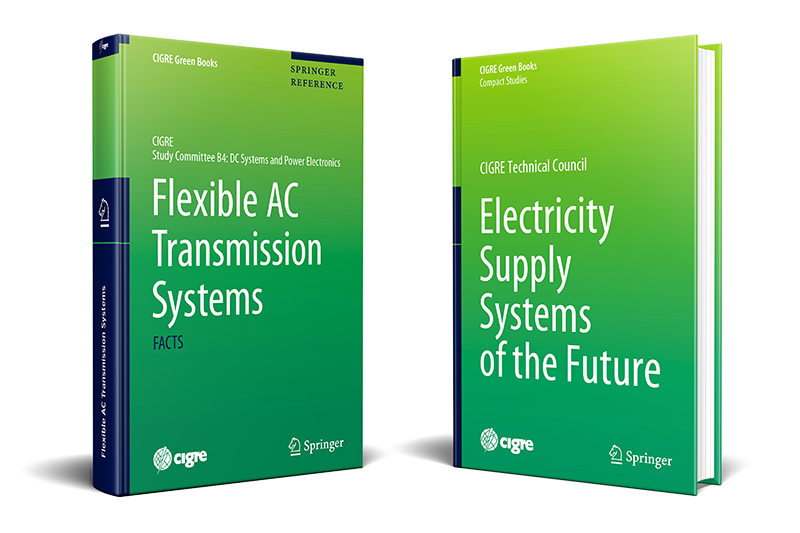
The Green Books are available for purchase on our partner's website Springer.
If you are a CIGRE Member, please contact us to benefit from a 40% discount on your purchase.
2019 SC meeting
In 2019 Study Committee B4 meeting was held in Johannesburg, South Africa in October. During the two-day meeting, the Study Committee discussed the WG activities, and the proposals for new Working Groups.
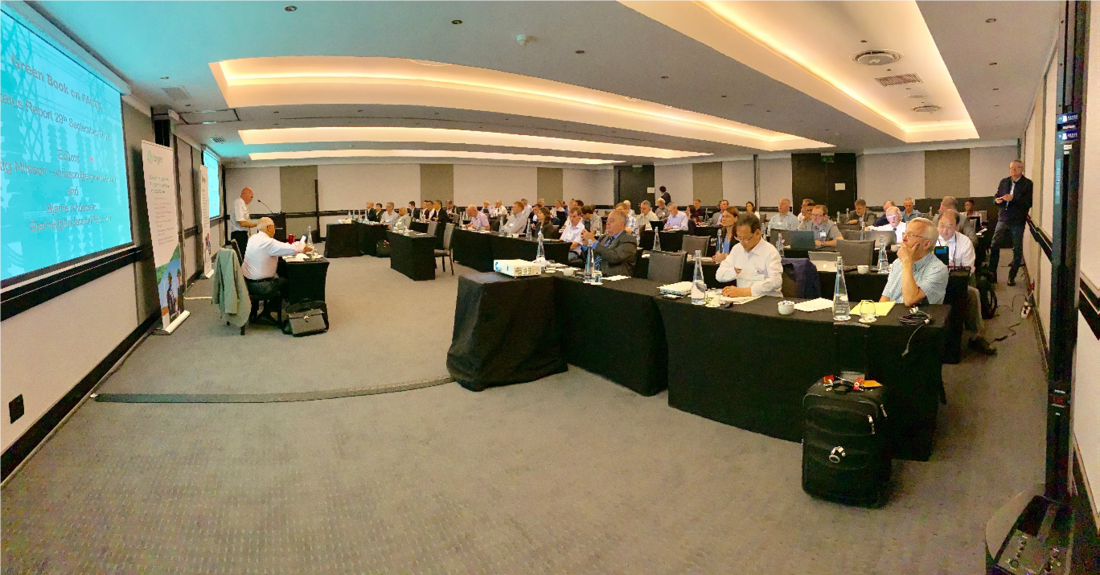
Study Committee B4 meeting in South Africa
As part of the Study Committee meeting in South Africa, SC B4 colloquium was organized in conjunction with The Africa Regional Conference. 25 papers were presented and discussed during the colloquium.
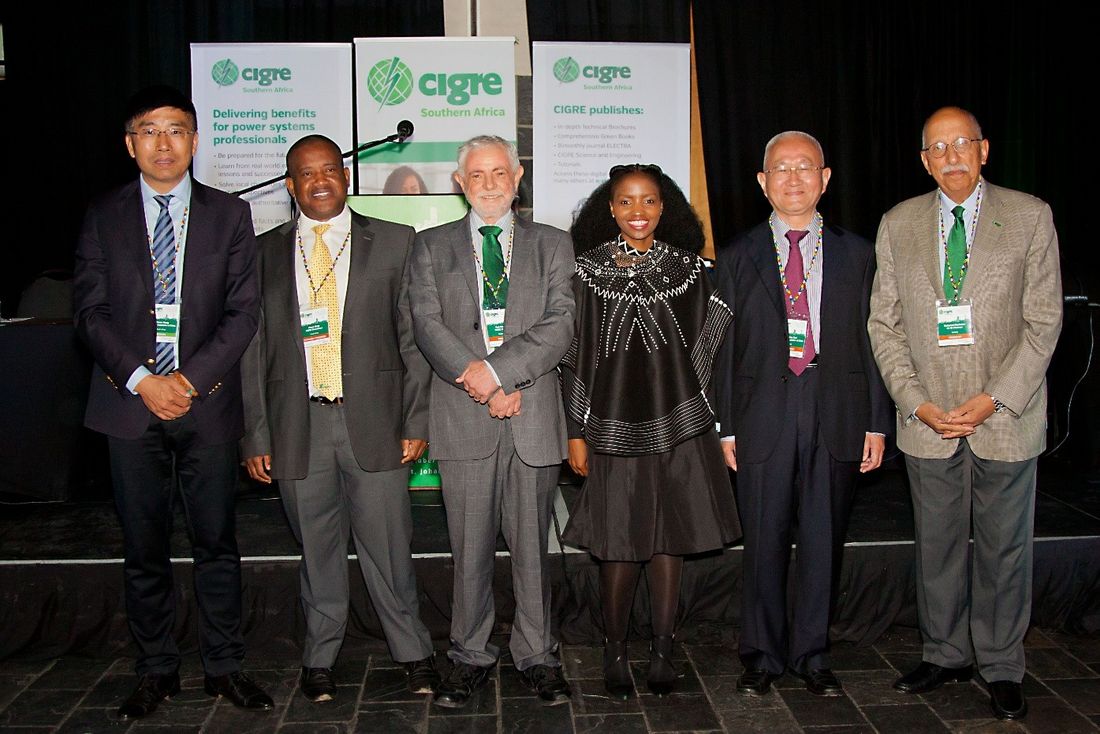
The opening session of the Africa Regional Conference
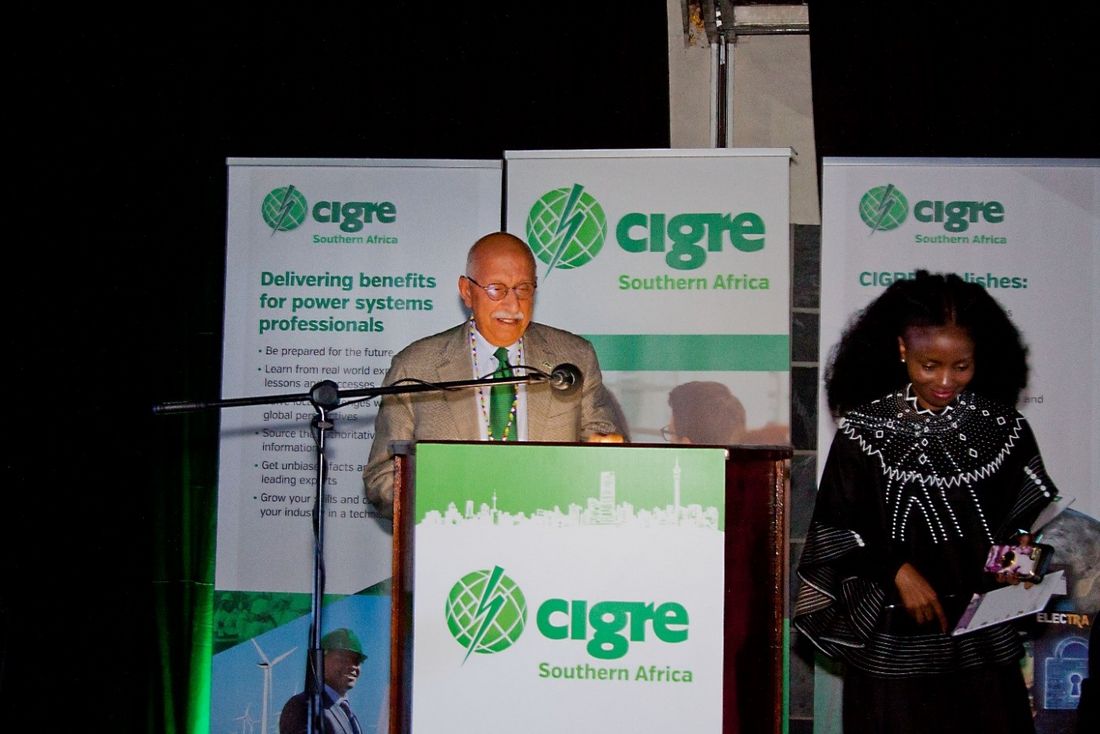
SC B4 meeting in South Africa
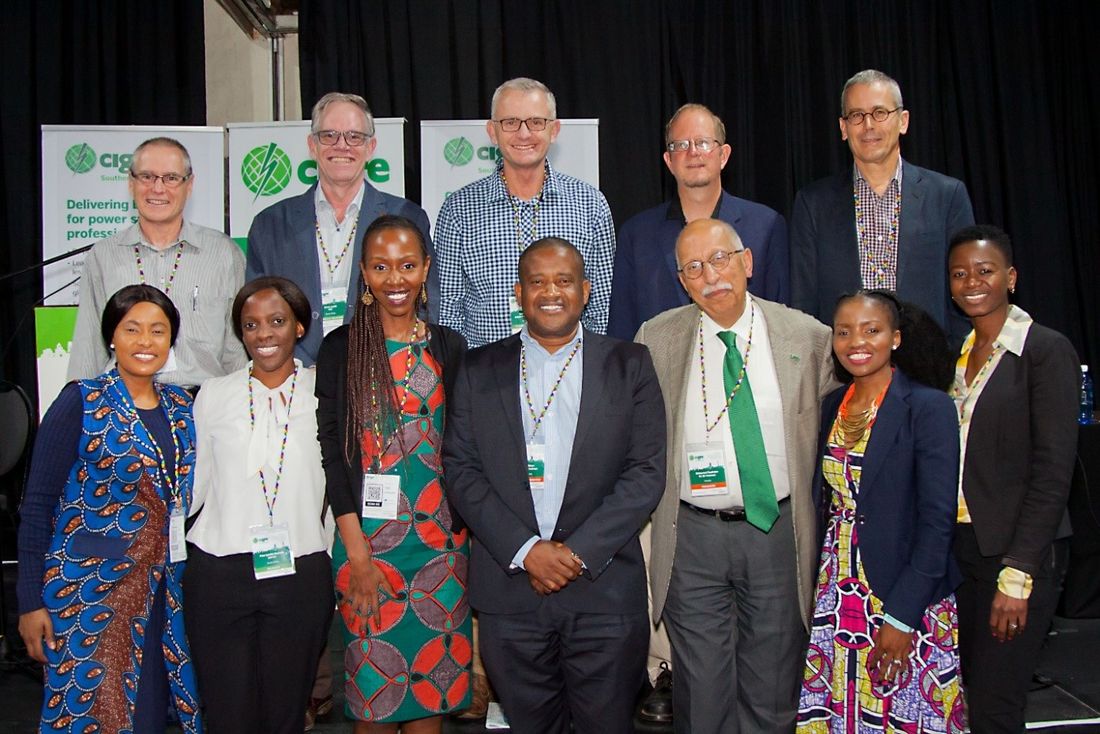
SC B4 meeting in South Africa
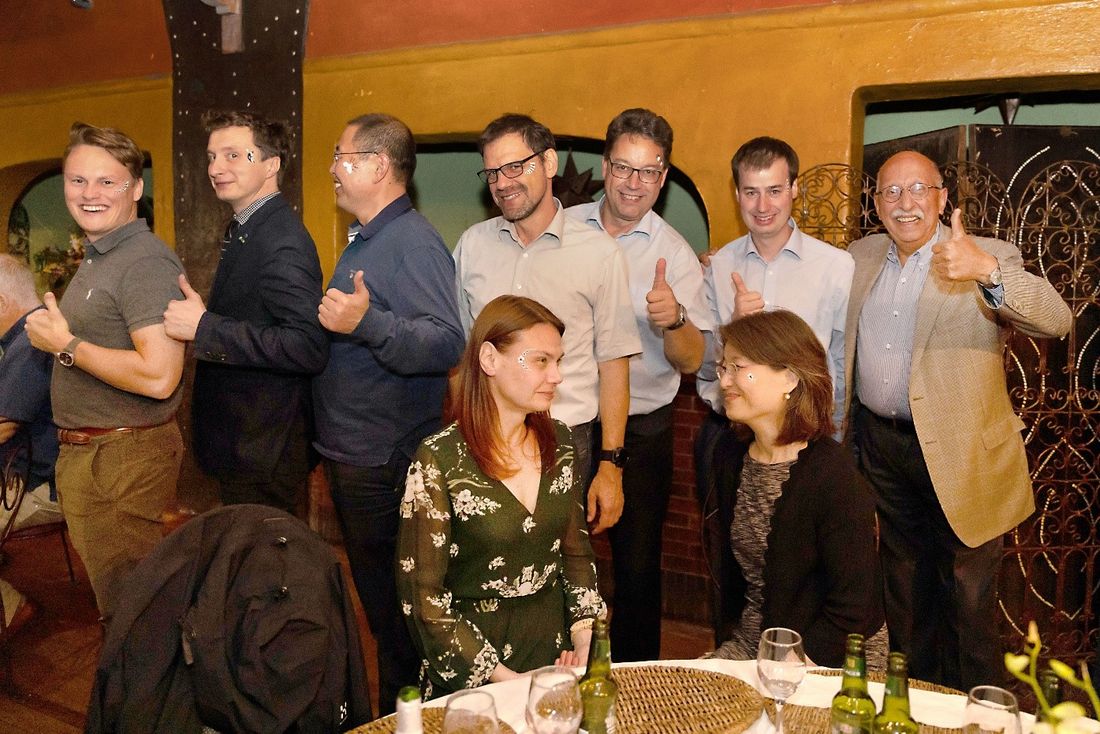
SC B4 experts enjoying the Social event hosted by South Africa National Committee
Liaison with other organizations
Study Committee B4 liaisons with other organizations that are also active in the areas of DC and power electronics:
- IEEE
- IEC
- ENTSO-E
- CENELEC
Tutorials
Study Committee B4 presented 7 tutorials in 2019:
- Two tutorials during the Study Committee meeting in Johannesburg, South Africa
- One tutorial during the Alborg Symposium
- Two tutorials in Egypt during the future of electricity grids, challenges and opportunities CIGRE conference in Cairo
- Presentation at the Global Grid Forum in Vancouver Canada
- Presentation at the Greek CIGRE National Committee meeting in Athens
Participation in CIGRE Symposia and meetings
During 2019 SC B4 participated in:
- Alborg Symposium from June 3rd to June 6th. 25 papers were presented in five sessions related to DC and power electronics
- CIGRE/IEC meeting in Hakodate Japan
- CIGRE Egypt colloquium “The future of Electricity grids challenges and opportunities”
- Global Grid Forum in Vancouver Canada
CIGRE 48th - 2020 Session in Paris
SC B4 accepted 54 full papers for the 48th CIGRE session in Paris. The papers cover the three preferential subjects DC, FACTS and applications of DC and FACTS in Distribution systems. The plans are to have the papers presented during the virtual session in August 2020. SC B4 will present one tutorial during the session “Inverters in weak/isolated grids – operational aspects”.
Future meetings and participation in Symposia
Study Committee B4 will participate in:
- November 2020 in the CIGRE-SEERC conference in Vienna
- CIGRE Symposium Slovenia 2021
- CIGRE centennial Session in Paris in August 2021
